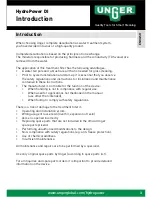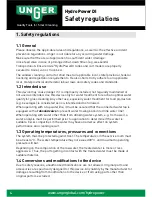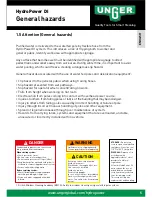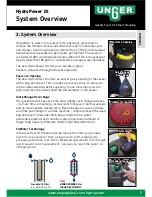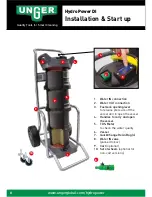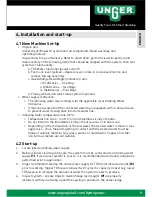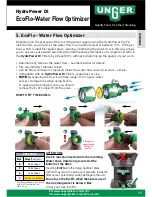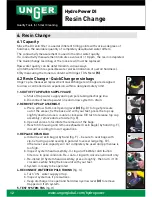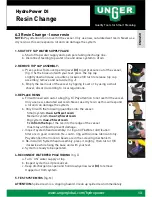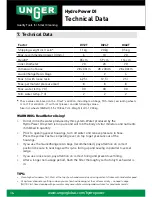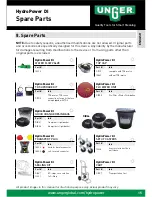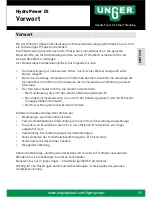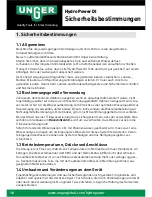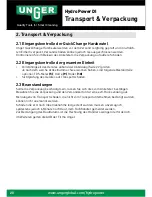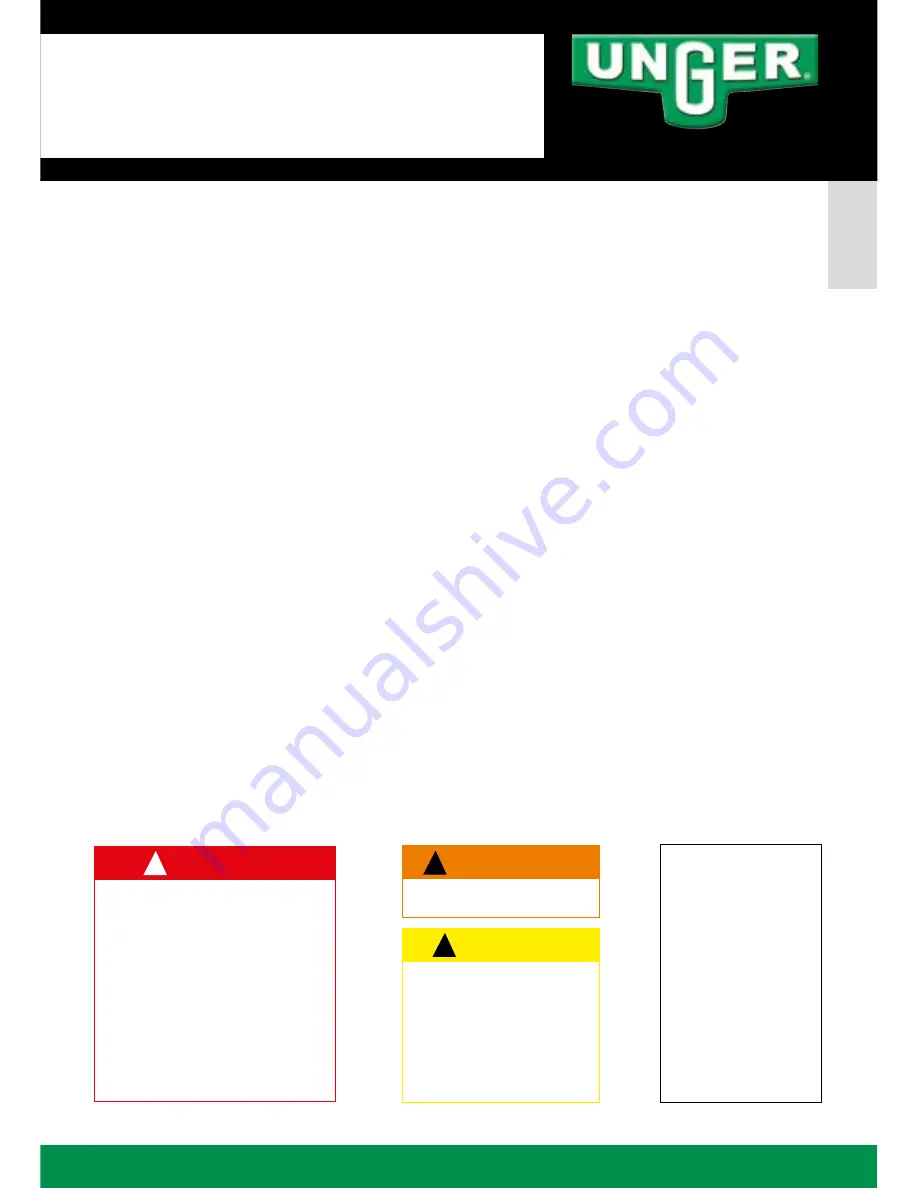
Quality Tools for Smart Cleaning
www.ungerglobal.com/hydropower
www.ungerglobal.com/hydropower
ENGLISH
5
Hydropower dI
General hazards
Contents under pressure can cause severe
injury or death from tank rupture.
When starting system:
• Check system for cracks.
• Be sure cover is in locked position.
• Do not exceed pressure of 116 psi (8Bar).
• Keep discharge line open and hold yellow le
-
ver down to remove trapped air from system.
• For use only with drinking water
Before servicing system:
• Shut off drinking water supply and open
waterfed pole tubing discharge line.
• Disconnect water supply and allow tank
to drain.
DANGER
!
Spilled resin is a slipping hazard.
Clean up spilled resin immediately.
WARNING
!
Resin can cause skin irritation.
Avoid skin contact.
Wash hands thoroughly after use.
Can cause eye irritation.
Avoid eye contact.
Wear safety goggles.
In case of eye contact, immediately
flush eyes thoroughly with clean
water. Consult doctor if symptoms
persist.
CAUTION
!
STORAGE:
Do not store
resin in open or unlabelled
containers. Store in a cool
(15°F to 100°F), dry place.
DISPOSAL:
Dispose of in
accordance with
applicable federal, state/
provincial, and local
regulations.
All nLite
®
HydroPower DI
units require the use of
mixed bed ion exchange
resin (commonly referred
to as de-ionizing resin).
This resin will require
replacement and handling.
1.5 Attention (General hazards)
Purified water is delivered to the waterfed pole by flexible hose from the
HydroPowerDI system. This introduces a risk of tripping both to worker and
general public. Identify work area with appropriate signage.
Any surface that becomes wet must be identified with appropriate signage to direct
pedestrians and workers away from work area. During wintertime, it is important to avoid
water pooling, which could freeze, creating a dangerous slip hazard.
General hazards associated with the use of water fed poles and deionization equipment
1
:
• Trip hazard to the general public when using trailing hoses.
• Slip hazard presented from wet pathways.
• Slip hazard for operator when concentrating on work.
• Falls from height when working on flat roofs.
• Electrocution from poles coming into contact with overhead power source.
• Injuries to others from falling poles or fabric of the building that may be dislodged.
• Injury to others from falling poles caused by incorrect handling or failure of pole.
• Injury through incorrect manual handling of poles and other equipment.
• Spread of legionella disease through poor maintenance of system.
• Hazards from carrying tanks, systems and equipment that are overloaded, unstable,
unsecured or incorrectly installed within a vehicle.
1. British Window Cleaning Academy (BWCA): Safety in window cleaning using waterfed pole systems



